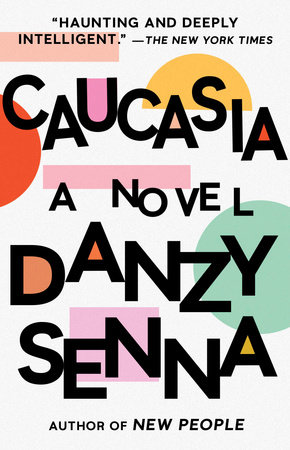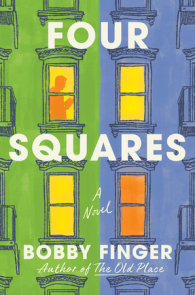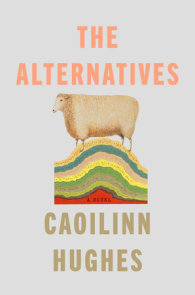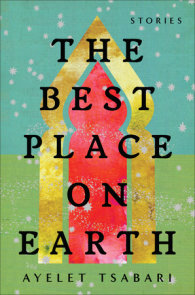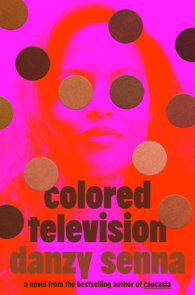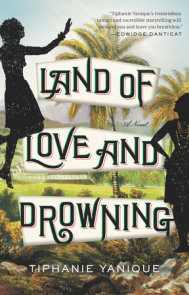READERS GUIDE
Questions and Topics for Discussion
INTRODUCTION
Birdie and Cole are the daughters of a black father and a white mother, intellectuals and activists in the Civil Rights Movement in 1970s Boston. The sisters are so close that they have created a private language, yet to the outside world they can’t be sisters: Birdie appears to be white, while Cole is dark enough to fit in with the other kids at the Afrocentric school they attend. For Birdie, Cole is the mirror in which she can see her own blackness.
Then their parents’ marriage falls apart. Their father’s new black girlfriend won’t even look at Birdie, while their mother gives her life over to the Movement: at night the sisters watch mysterious men arrive with bundles shaped like rifles.
One night Birdie watches her father and his girlfriend drive away with Cole-they have gone to Brazil, she will later learn, where her father hopes for a racial equality he will never find in the States. The next morning-in the belief that the Feds are after them-Birdie and her mother leave everything behind: their house and possessions, their friends, and-most disturbing of all-their identity. Passing as the daughter and wife of a deceased Jewish professor, Birdie and her mother finally make their home in New Hampshire. Desperate to find Cole, yet afraid of betraying her mother and herself to some unknown danger, Birdie must learn to navigate the white world-so that when she sets off in search of her sister, she is ready for what she will find.
ABOUT DANZY SENNAThe daughter of a black father and a white mother, both writers and activists in the Civil Rights Movement, Danzy Senna grew up in Boston and attended Stanford University. She holds an M.F.A. in creative writing from the University of California, Irvine, where she received several creative writing awards. She lives in New York City.
Praise
“Lucid and magnificent.” —James McBride, author of The Color of Water
“Senna’s remarkable first novel [will] cling to your memory. There’s Birdie, who takes after her mother’s white, New England side of the family—light skin, straight hair. There’s her big sister, Cole, who takes after her father, a radical black intellectual. It’s the early seventies, and black-power politics divide their parents, who divide the sisters; Cole disappears with their father, and Birdie goes underground with their mother…Senna tells this coming-of-age tale with impressive beauty and power.” —Newsweek
“[An] absorbing debut novel…Senna superbly illustrates the emotional toll that politics and race take on one especially gutsy young girl’s development as she makes her way through the parallel limbos between black and white and between girl and young woman…Senna gives new meaning to the twin universal desires for a lost childhood and a new adult self by recounting Birdie’s struggle to become someone when she can look and act like anyone.” —New York Times Book Review
“Brilliant…a finely nuanced story that explores the matter of race through the eyes and heart of another white black girl.” —Ms.
DISCUSSION QUESTIONSCaucasia begins with Birdie’s recollection: “A long time ago I disappeared. One day I was here, the next I was gone.” Why does Birdie come to think of herself as having “disappeared” when living as Jesse Goldman? Is her ability to disappear a blessing or a curse? Is Birdie “passing” when she calls herself black, or when she calls herself white? When is she not passing?
Cole and Birdie speak Elemeno, a language named after their favorite letters in the alphabet, “with no verb tenses, no pronouns, just words floating outside time and space, without owner or direction” (p. 6). How does Elemeno reflect the sisters’ positions in their family and in the world? Why does Elemeno continue to be so important to Birdie throughout the novel?
In what ways is the tension between Sandy and Cole typical of that between any mother and daughter, and in what ways is it specific to an interracial family? Do you agree with Cole’s statement: “Mum doesn’t know anything about raising a black child” (p. 44)? Does Sandy treat her two daughters differently based on their appearances?
Why do you think Deck treats Birdie with a “cheerful disinterest-never hostility or ill will, but with a kind of impatient amusement” (p. 47)? Do you think he loves Birdie? How do Birdie and Cole respond differently to Deck’s teachings on race? Who internalizes his vision of America more? By the end of the novel, have Cole and Birdie embraced or rejected their parents’ philosophies about the world? Which sister seems to have become more like Deck, and which more like Sandy?
Officially, Birdie has no name. Her birth certificate “still reads ‘Baby Lee,’ like the gravestone of some stillborn child” (p. 17). Her sister’s name, meanwhile, was originally Colette after the French novelist, but was later shortened to Cole. Discuss the significance of the sisters’ names.
Sandy and Deck are initially drawn together by a quote by the French existentialist writer, Camus, who wrote: “Do you drink coffee at night?” What does this initial encounter tell you about their compatibility, or incompatibility? Why does their relationship eventually sour? Do you believe they were torn apart because of external pressures, or internal ones? Do you think they would have stayed together had they lived in a less racially divided city or in another country altogether? By the end of the novel, does Birdie believe that her parents really loved each other? Do you believe that they did?
Birdie refers to the time she spends on the run with Sandy, while “the lie of our false identities seemed irrelevant” (p. 116), as “dreamlike.” Despite a sense of loneliness, Birdie says she felt “comfort in that state of incompletion” (p. 116). Do you feel that this experience weighed more positively or negatively in Birdie’s development? By the end of the novel, has she found “completion”-or will she continue to live in this state of incompletion?
How did Sandy and Birdie’s stay at Aurora affect Birdie’s emerging sexual identity? How do her sexual experiences with Alexis compare to her later sexual experiences with Nicholas in New Hampshire? Does Birdie’s emerging sexuality in any way parallel her search for racial identity?
Redbone lurks in the background of the novel as a sinister figure. Why does he initially take such an interest in Birdie? Why does he take her photograph in the playground? Do you believe he is in part responsible for the troubles that befall the family? Ultimately, who or what do you feel is to blame for Cole and Birdie’s separation?
Birdie often seeks her reflection in other women’s faces. What parts of herself does she see mirrored in Cole? Sandy? Maria? Samantha? Dot? Penelope? Mona? Others? What are the potential advantages and disadvantages to being a chameleon?
Birdie holds on to a fantasy of helping Deck’s research by spying on white people while “passing.” How does she fail or succeed in her study? What does she find out? Does she become Jesse Goldman, or is she able to remain Birdie in disguise? Are her fantasies about Deck shattered or fulfilled when she encounters him at the novel’s conclusion?
At some point in New Hampshire, Birdie starts to add items to her box of “negrobilia.” Discuss the significance of the various “artifacts” Birdie keeps in her box. Do they succeed in helping her remember Cole and Deck?
In the woods one night in New Hampshire, Samantha says to Birdie: “ ‘I’m black. Like you’ ” (p. 242). Do you think Samantha has been aware of Birdie’s racial heritage all along, or is Birdie mishearing her? What or who gives Birdie the courage to finally leave New Hampshire?
Birdie sees her mother as “a long-lost daughter of Mayflower histories, forever in motion, running from or toward an utterable hideaway” (p. 286). In your opinion, is Sandy more “a hero, a madwoman, or a fool” (p. 332)? What motivated her to take up a life of political activism? What has she sacrificed in the process?
Do you agree with Deck that race is “a complete illusion… a costume” (p. 334)? Does Birdie and Cole’s experience prove that racial identity is simply a costume, or something deeper?
In the novel’s conclusion, Birdie says to her sister: ” ‘They say you don’t have to choose. But… there are consequences if you don’t.’” Cole replies: ” ‘Yeah, and there are consequences if you do.’” What are the consequences of choosing and not choosing? Have Birdie and Cole chosen one part of their racial heritage over the other by the novel’s conclusion?
Birdie writes, “While there seemed to be remnants of my mother’s family everywhere-history books, PBS specials, plaques in Harvard Square-my father’s family was a mystery. It was as if my father and Dot had arisen out of thin air.” Does her mother’s white family’s written history shape her identity more than her black imagined one? How does knowing or not knowing one’s history contribute to one’s sense of identity? Does what we learn about ourselves through oral or written histories give us a different understanding of ourselves?
Do you agree with Deck’s theory about mulattos in America functioning as canaries in the coal mine? Is Birdie a canary in the coal mine? What do you imagine her fate will be?







